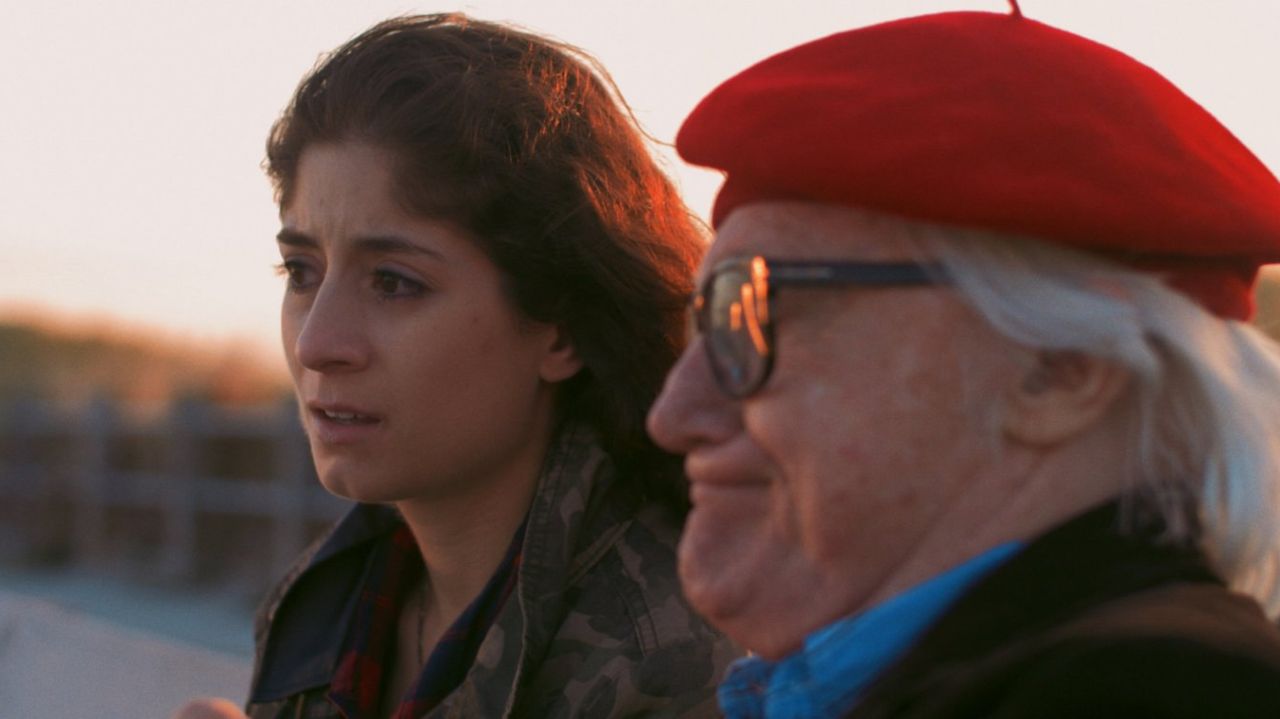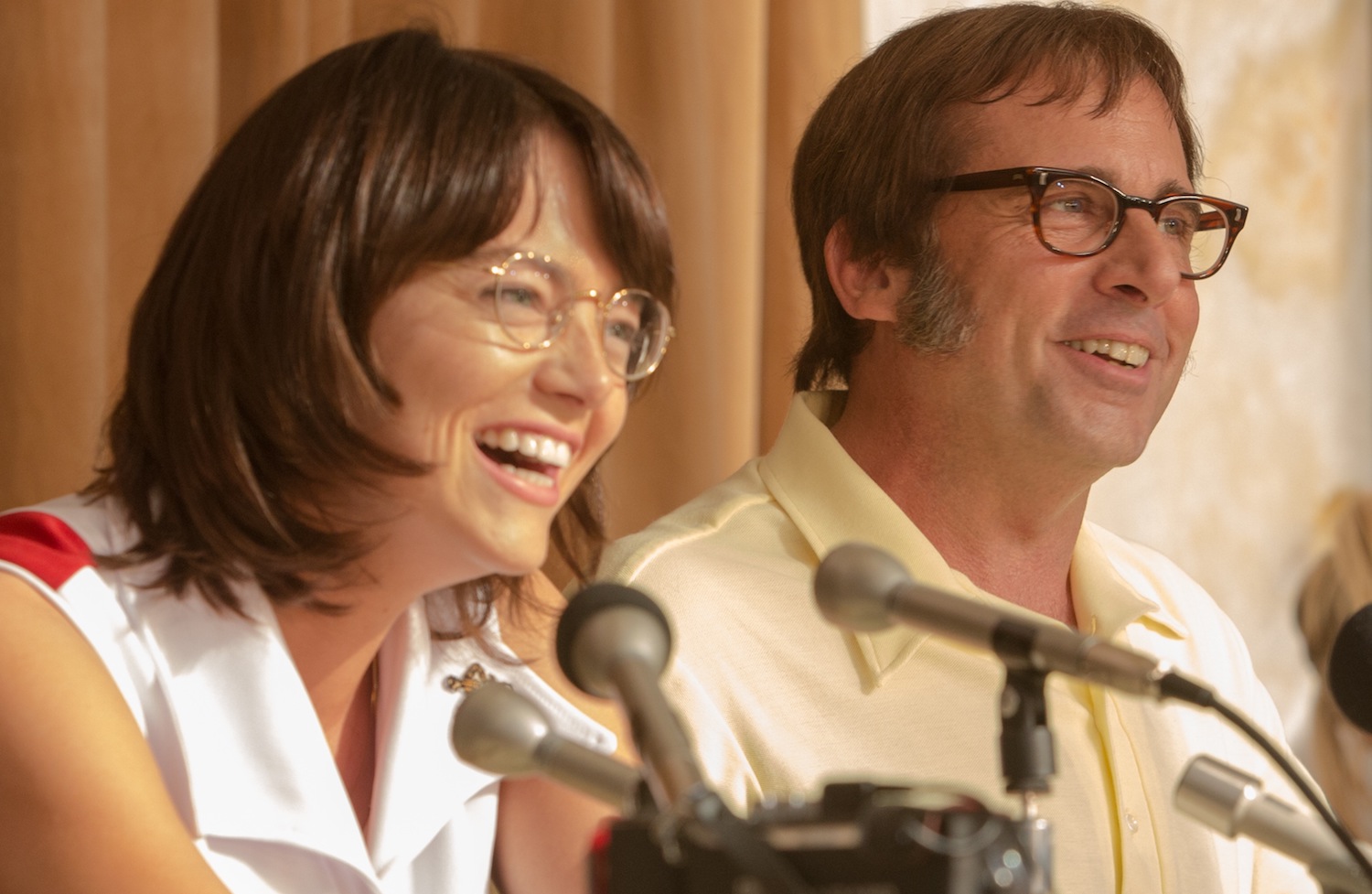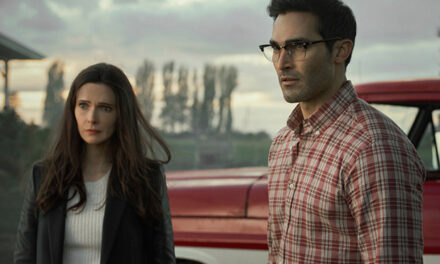There’s something that can be refreshing about small-scale productions. Whether for artistic or budgetary reasons, scaling back and focusing on one character in a specific circumstance can be just as impactful as operatic machinations. This is what Victoria Negri has tried to accomplish in her directorial debut, Gold Star, and the result is sweet, heartbreaking, and self-contained while retaining a disposition open to possibilities.
Our film opens on Vicki (Negri) getting a call from her mom (Catherine Curtin) at the hospital. Vicki, in her twenties, is the daughter of a significantly older man (Robert Vaughn, seen here in his final performance at the age of 83), who has suffered a stroke that has rendered him immobile and unable to communicate verbally. Vicki must come to terms with her father’s potentially imminent death, acting as a caretaker many years before she would have had she and her father been closer in age.
This causes Vicki to internalize a lot of her complicated feelings toward her father, pushing her away from her current boyfriend and suppressing her feelings for the perceived good of her family. She meets a young man, Chris (Jacob Heimer), who is caring for his similarly disabled grandfather and the two hit it off, despite Vicki’s unwillingness to emotionally confront the potential loss of her father, or even the partial loss evident through his loss of communication. Negri delivers a powerfully understated performance that in another film might have come across as hollow and unexpressive, but because her film is so intrinsically tied to emotional repression that apparent weakness becomes a strength.
Rather, our investment comes from watching how Vicki gravitates toward and pushes away the people in her life, particularly as they approach her father’s illness from various points of reference. Vicki’s mom is struggling under the weight of being her husband’s primary caretaker, but she has spent her life married to this man preparing for the possible eventuality of this; Vicki is too young to have effectively prepared. Vicki’s stepsister (Anna Garduno), closer to Vicki’s mom’s age than hers, lashes out at Vicki’s repressed emotions. Chris, meanwhile, is a supportive presence who draws strength from interacting with others, whereas Vicki just wants to get away from her family. This is nowhere more evident than in her frustrated interactions with her father, who expresses much more patience with her than she with him. All these points of contrast paint Vicki as a whole and empathetic person; while we aren’t privy to her thoughts directly, we can figure out who she is by seeing who she is not, which is a nice trick for a freshman director to have in their arsenal.
Gold Star isn’t a revelatory film, but it is a surprisingly effective piece from a previously relatively unknown voice. There is a deft understanding of human relationships that paints a complex portrait of a woman in a specific circumstance. The film leaves the future open-ended in a manner that speaks to the possibilities for Vicki to grow beyond this experience, but we also know that her relationship with her aged father will continue to shape her for the rest of her life. As an examination of the ways in which we experience grief for the still-living, Gold Star is a remarkably insightful experience.













